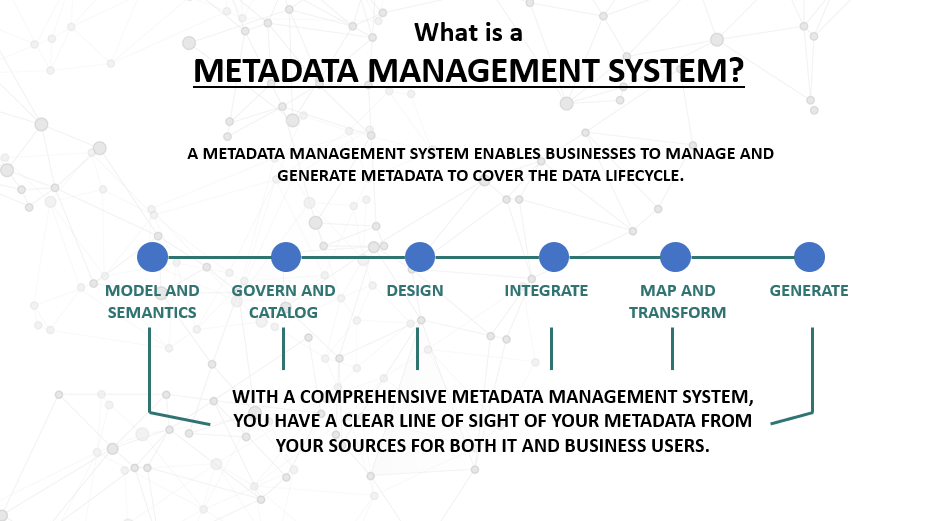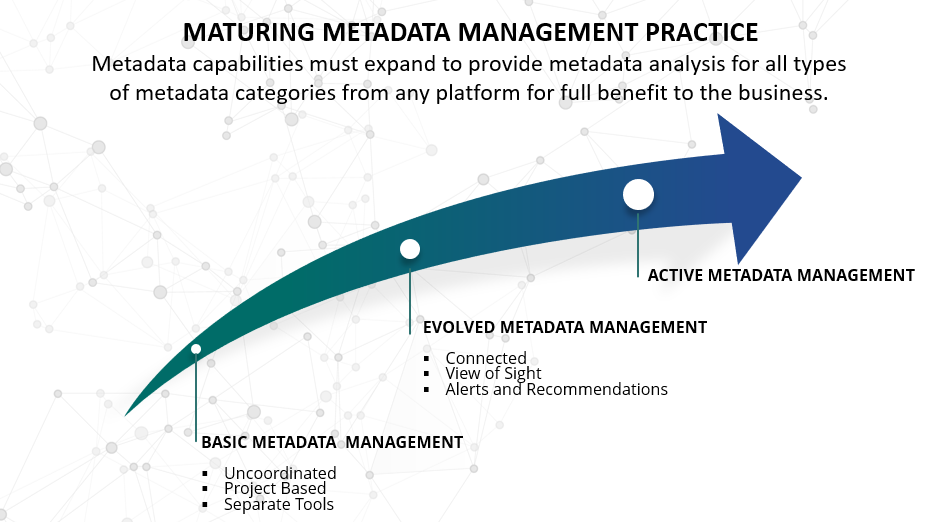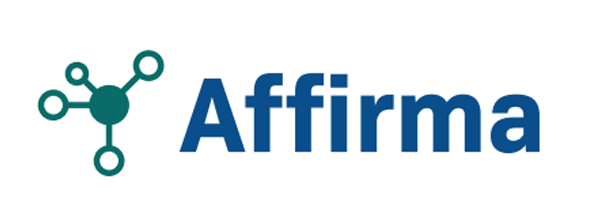Suddenly you and your organization are tasked to transform your electricity system into one that is cleaner, more resilient, and more affordable. And it that was not enough, it needs to happen in collaboration with other industry sectors, such as transportation, agriculture, manufacturing and others.

Is the "apple" a fruit or a laptop?
You need to share data, understand it and make decisions. But you don’t speak the same language; your acronyms might even be the same, but the meaning could be different. This is where metadata and metadata management come into play.
Data About Data
Metadata is data about your data. It describes your data structure, content, origin, usage and data relationships. In doing so it helps you organize, find and understand your data, how it is used, who is using it as well as any restrictions that may apply.
Some common types of metadata include:
- Descriptive Metadata to identify objects
- Structural Metadata to define the format of objects and relationships
- Administrative Metadata to define data lifecycle rules
- Business Metadata to define data owners, stewards and business rules
- Provenance Metadata to track history
- Usage Metadata to understand impact and reach of datasets
These are only some metadata types, to exemplify that metadata is more than just identification and formats, as traditionally seen in database schemas.

Metadata can also be seen as static, such as for instance “the sender” and “the recipient” of a text message. Metadata is also operational, as in “the usage over time” and “the users” of certain actual data sets.
Goals and Outcomes
One of the first things that come to mind when speaking of metadata is to enable data integration from diverse sources, closely followed by making it easy to find, access and use the data. There are numerous other uses for metadata. It helps you understand the origin and transformation of data over time, including when technologies change. It can help you maintain high quality data, by imposing business rules. One key aspect of metadata is it can be used to support compliance with the regulatory environment and protect sensitive information, by including audit trails, classification and access labels.
When we say we need to “manage data as a valuable asset”, the implication is that we must manage the metadata.
Managing Metadata
Understanding the many different types of metadata, managing it is not trivial. A metadata management system must enable businesses to not only manage but also generate metadata to cover the data lifecycle. And in some sense this management needs to be connected to provide a clear line of sight of your metadata from sources to sinks, for all stakeholders.
It is clear you need to model, govern and catalog. But how about integrations, mapping and transformation between sources and sinks. And the design aspect, what goes where? Not to mention the need to generate for instance an analytics platform, to include not only information about the electricity system, but also transportation and manufacturing for a comprehensive data set for strategic decision making and innovation.

Learning from Metadata
We understand the use of data for decision making, but how about the use of metadata for decision making? Would it be valuable to know that a dataset is shared across the organization? Would it be valuable to know that certain datasets are often used. Likely you would invest more in technology and maintenance related to those datasets. Or that the data quality is excellent? Or that data from a region is more error prune than from other regions, warranting some staff training perhaps?
By using interrogation tools, in its simplest form, a text editor or excel, or by validating metadata against standards, using scripts, tools and analytics, an organization can better understand its data landscape through its metadata.
Maturing Metadata Management
Organizations are constantly looking to optimize, automate and want to future proof investments. Maturing your metadata management practice is one of the building blocks. Xtensible recognized early on that utilizing disparate technologies to mature metadata management is not the solution. With Affirma, by Xtensible, you have a metadata management solution with capabilities to manage your metadata, and to enhance it, moving from basic metadata management to evolved metadata management.

Since Affirma is built on standards from the W3C Semantic Web technologies, including graph technology, the resulting architecture ensures the quality, integrity, and openness of your data by guaranteeing interoperability with many heterogeneous applications and data formats. This standardization also enables Affirma to carry out advanced analytics and reasoning on your metadata by leveraging a wide array of existing libraries and algorithms. You quickly gain deeper insights into your business data and processes. With this, your metadata maturity is moving towards active metadata management, with continuous access and processing of metadata to support ongoing metadata analysis for decision making, for sharing and for interoperability.
About Affirma
Affirma, by Xtensible, is a seamless and single point of reference for data modeling, mapping, analytics, and integration for those who are seeking to act and digitally transform through their data in support of operations and changing business needs while embracing new technologies and innovation. Learn more about Affirma and how to navigate change! Speak to a member of the Xtensible team.
About Xtensible
Connected data and technologies provide insights adding unimaginable value for our common future. At Xtensible, we ensure that you have friction less access to your data across your entire organization all the time. Our strategic framework defines our engagement approach, helping you do more with less. Our approach increases the trust in data used for decision making, reduces risk, and enables you to make financially sound decisions. Our services are based on a partnership mindset and deep information and data, and systems architecture knowledge and experience. We leverage industry standards to support you through your entire journey towards strategic business objectives.
Today and for the foreseeable future we will be experiencing significant shifts in both personal and corporate behavior triggered by technological advances, awareness, security, and regulatory requirements. The data journey must become more inter-connected. Want to know how?
Learn more about Affirma and how to navigate change! Speak to a member of the Xtensible team.
ABOUT THE AUTHOR
Michael Covarrubias
VP Solutions and Strategy, Managing Partner at Xtensible
With over a decade of utility background and experience, he has worked with various areas in the utility sector including Enterprise Architecture, Executive Management, Mobility, Operations, Customer Service, Field Service, and Generation across multiple different domains of technology and business areas.
Erika Ferguson
Consultant at Xtensible
With over 20+ years of utility industry experience she is positioned to understand, appreciate, and embrace opportunities, and drives results by bringing people and ideas together.



